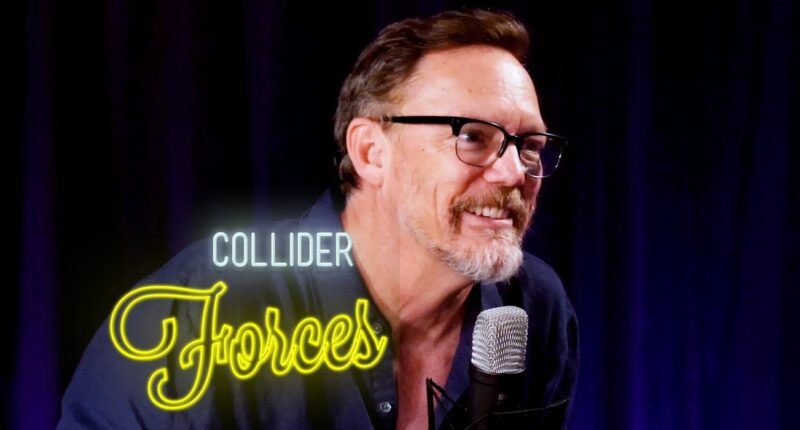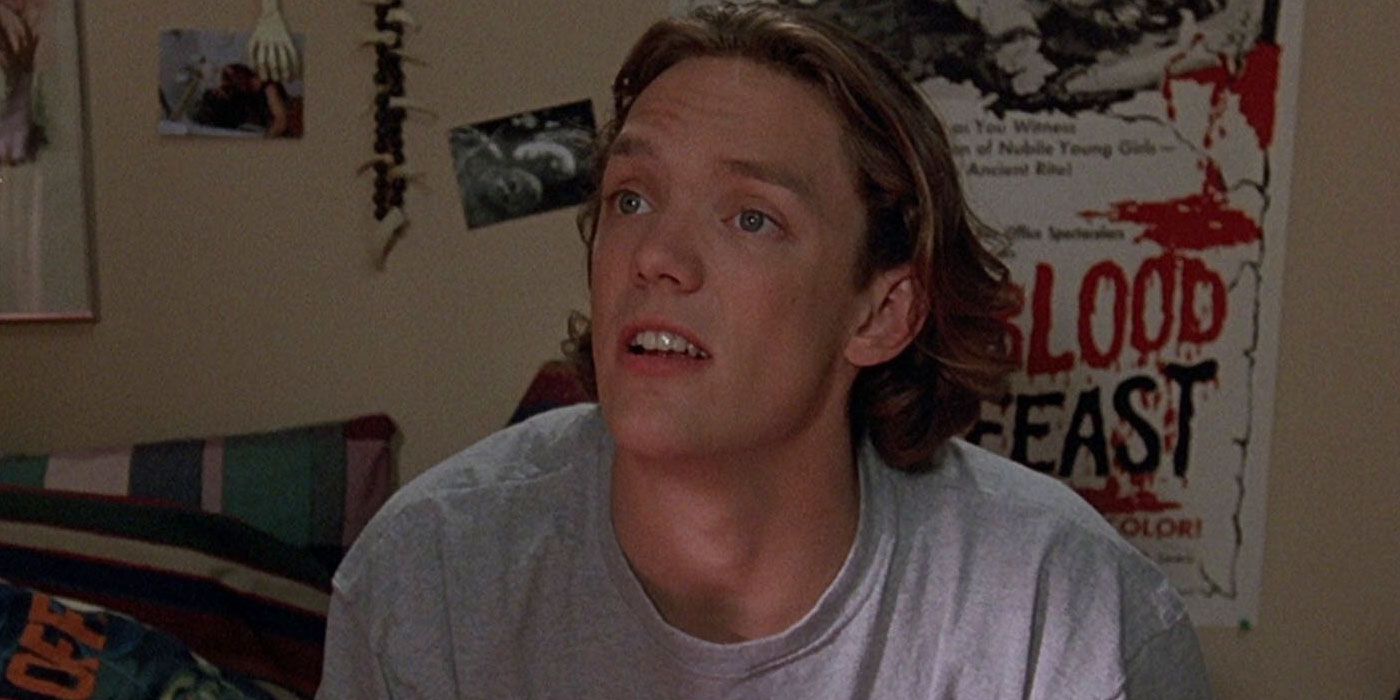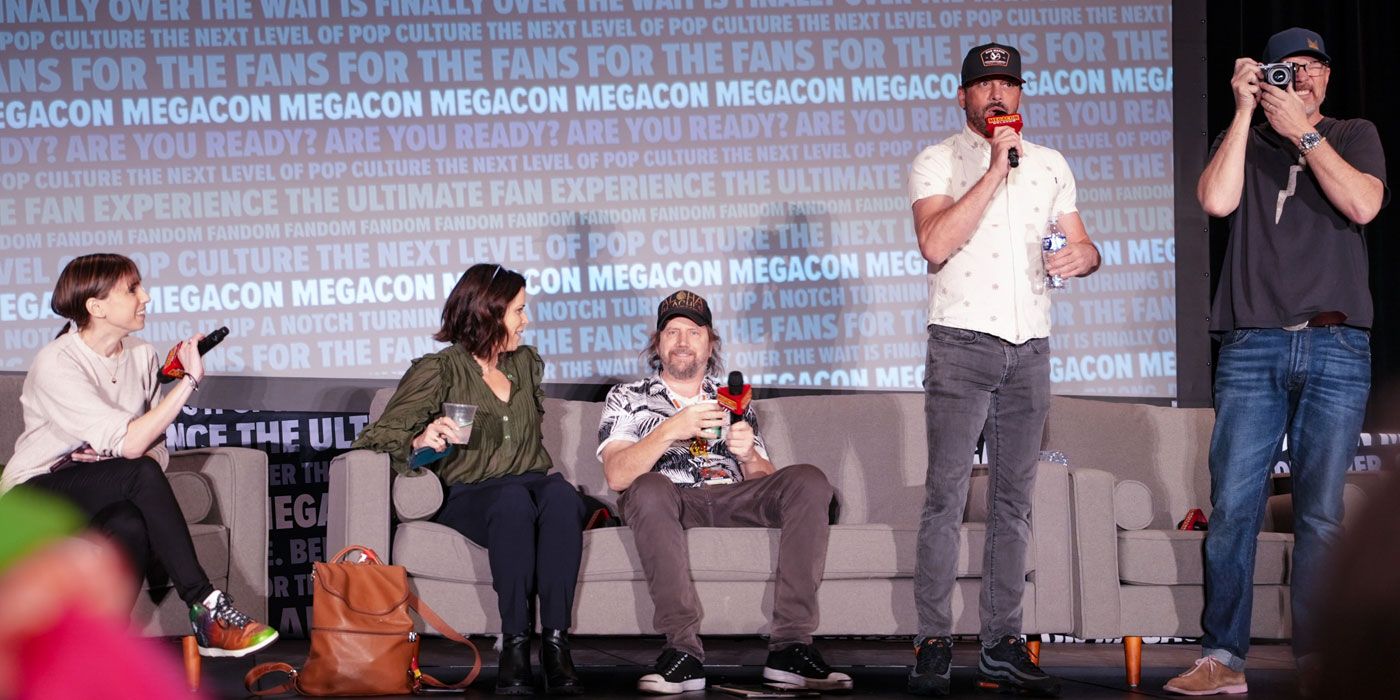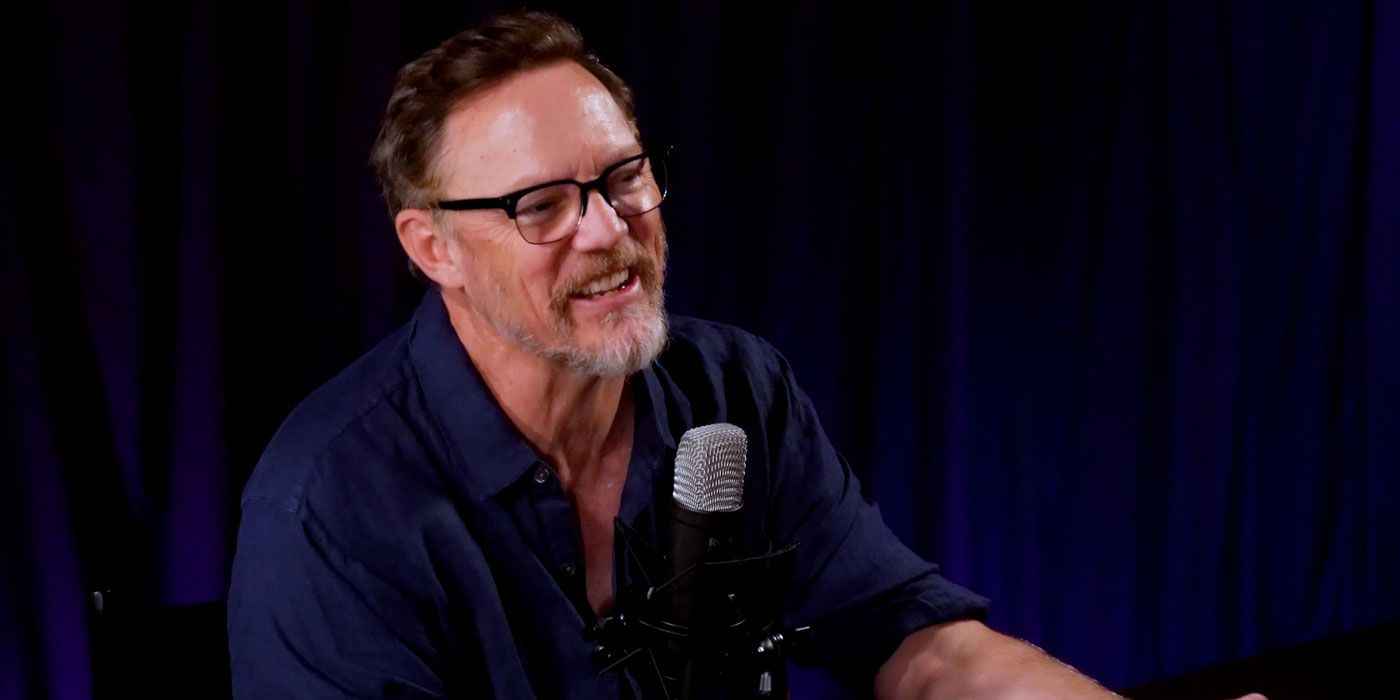The Big Picture
- Welcome to a new episode of Collider Forces with
Scream
and
Five Nights at Freddy’s
star Matthew Lillard. - During his chat with Perri Nemiroff, Lillard looks back on pivotal moments of his career, including the release of
Scream
and being part of Alexander Payne’s
The Descendants
. - He also celebrates a number of very exciting upcoming projects including the release of his new tequila via Macabre Spirits, which is paired with the first-ever horror novella from Mike Flanagan.
“I really wanted to be the number one on the call sheet in every movie I’ve ever done. It just never went that way.”
Perhaps it never went quite that way for Matthew Lillard, but his career in film, television and beyond has taken a unique turn over the years, and it’s an important one. Lillard isn’t headlining films — although I do have high hopes that will change — but he is getting supporting roles in some especially wonderful gems. Five Nights at Freddy’s, of course, was a hit for Universal and earned a sequel, and he’s also in Mike Flanagan’sThe Life of Chuck, which just scooped up the coveted People’s Choice Award at the 2024 Toronto International Film Festival. Both wonderful wins in which Lillard delivers big as an actor, but a personal favorite aspect of seeing Lillard’s star soar especially high in recent years is watching how he’s used his success to foster community. Or rather, as he puts it, he’s become “the grandfather of geek culture.”
I witnessed this for the first time at MegaCon 2023. I was quite familiar with San Diego Comic Con and New York Comic-Con, but the fan convention circuit is different. It’s less about promoting upcoming projects and more focused on connecting fans with the artists they love. Lillard takes that very seriously. As a diehard Scream fan since 1996, I was thrilled when offered the opportunity to moderate the Scream panel which included Lillard, Skeet Ulrich, Jamie Kennedy and Neve Campbell. Per usual, I prepped to the max and was ready to roll with a mile-long list of questions, but when I arrived and met the foursome, I was quickly informed that they’ve got this. At the time, nearly all of my moderating experience happened during post-screening Q&As or studio-produced convention panels that leaned heavily on a conversation leader and/or a specific run of show, so I didn’t quite know what they meant by that. We hit the stage, they gave me the first question of the panel, and then they took the reins, and it was a beautiful thing.
Lillard and Ulrich hopped off stage, walked out into the crowd and spearheaded a conversation that didn’t feel like panelists and audience, but rather, one big room of Scream lovers all hanging out together. Yes, Lillard, Ulrich, Kennedy and Campbell celebrated their iconic film, but the panel was much more about making their fans feel seen and bringing everyone closer together. It was abundantly clear that it worked, and that it meant something to everyone in the room. The first thing I said to a friend after walking off that stage? “That just made me even prouder to be a Scream fan.”
I sit here a massive fan of Lillard’s, fully believing he’s very deserving of those lead roles, but he’s connecting with the masses in a way that matters. During our Collider Forces conversation, we looked back on the early days of his career and the key moments that nudged him in this direction and ultimately made him a very important voice, and force, in fandom and a champion of unique forms of storytelling.
How Matthew Lillard Discovered His Passion for Acting
“It was the first time in my life, literally, that people, adults, teachers, my parents said, you’re good at something.”
When Lillard first recognized the itch to act, it wasn’t about “making it” in Hollywood, but rather, doing the thing he loved, the thing that made him feel good about himself. He recalled:
“I was an obese teenager in Orange County, California, a transplant from Detroit, Michigan, and my father said, ‘You can either take a typing class or an acting class.’ The idea of an acting class was that, someday, I would be presenting as a salesman. Typing class, well, it was obvious at the time. That son of a bitch still made me take a typing class the next year, so I feel like it was kind of a BS moment for my dad and I. I’m still working through that. But I got into an acting class and it was the one place I could be funny.
I had a learning disability, so how I dealt with the uncomfortable position of not knowing and being lost was to be funny.
‘You can’t pick on me if I’m funny.’ That defense mechanism was really useful in the world of acting. It was the first time in my life, literally, that people, adults, teachers, my parents said, you’re good at something, and so for
me
, being good at something changed my life forever. I never wanted to be a professional actor. I wasn’t out there going, ‘I’m gonna make it in Hollywood!’ I literally just kept doing the things
I
loved and found a way, collecting hours, collecting opportunities, collecting moments, to sort of rise to the talent pool where I was and then go to LA. I just kept working at being great at what I love, but not to find success or to make money.”
Being rich and famous may not have been a priority for Lillard, but being able to make a living was. As we all well know, you can hit it big with one film or show in Hollywood, but that doesn’t guarantee a steady stream of opportunities moving forward. Even at 54, Lillard still struggles with that reality.
“At 54,
I still worry about never working again
. I mean, Jimmy Stewart, they say, went to his deathbed thinking, ‘That’s it. They may never ask me back.’ And so, look, that insecurity of having a finite career is a really brutal way to live a life, right?
I spent the early part of my career really desperate for more work because I defined myself by what I was working on
, not because I wanted to be rich or famous. There’s something [President Joe] Biden talked about when he was in the election cycle in 2020. He talked about the dignity of work. I think that the dignity of work for me when I was young was a real thing. If I was working, I felt good about myself. If I wasn’t working, I was desperate. And at some point, I couldn’t live my life in desperation, and I just flipped everything.”
One particular way Lillard’s flipped things? By becoming a regular on the fan convention circuit.
How Fan Conventions Changed Matthew Lillard’s Life
“We had a stable flow of income which changes everything.”
Fan conventions have been around for quite some time, but there’s no denying that the events are thriving more so than ever in recent years. On the one hand, they are wonderful opportunities for fans to meet their favorite artists, and then, on the other, they’re opportunities for those artists to continue to make livings during trying times, like when the industry is in the midst of strikes.
“
That whole convention world has been life-changing, to be honest.
We went through a strike, which was horrific for everyone in this industry, and we had a stable flow of income which changes everything. At some point, the very first convention I went to, I saw everyone sitting behind tables sort of transacting here and taking money and giving an autograph, and it just didn’t feel right to me. And so I stood up the whole time and I hugged everyone that came to my table. At that convention, my first convention, I think I probably spent, like, five minutes with every person, which is way too long.”
Perhaps Lillard needed to make some adjustments to his approach to having these types of interactions, but his goal remained the same. He just wants to make sure every single person who comes up to his table feels seen. He continued:
“My whole thing was, and now I
really
know this to be the truth, and Skeet [Ulrich] said this — I love him, because we now travel together —
he said to me one day, ‘Your special gift is to make people feel seen.’
For me, the idea that you can hug that little queer kid in Kansas City or somebody wrestling with addiction or alcoholism or obesity or whatever, and you, as something that means something to them, can make them feel, even for a second, fucking
seen
—
I know that it can save a person’s life
. I know that because I’ve had parents come back to me and say, ‘You saved this kid’s life.’ Listen, there’s lots of people going through things, and if, in a moment, Shaggy from that thing a long time ago means something to you and can make an impact, well, then I’m gonna be there for it.”
Matthew Lillard Tears Up Sharing a Favorite Wes Craven Memory
“He said, ‘Someday you’re gonna win an Academy Award.'”
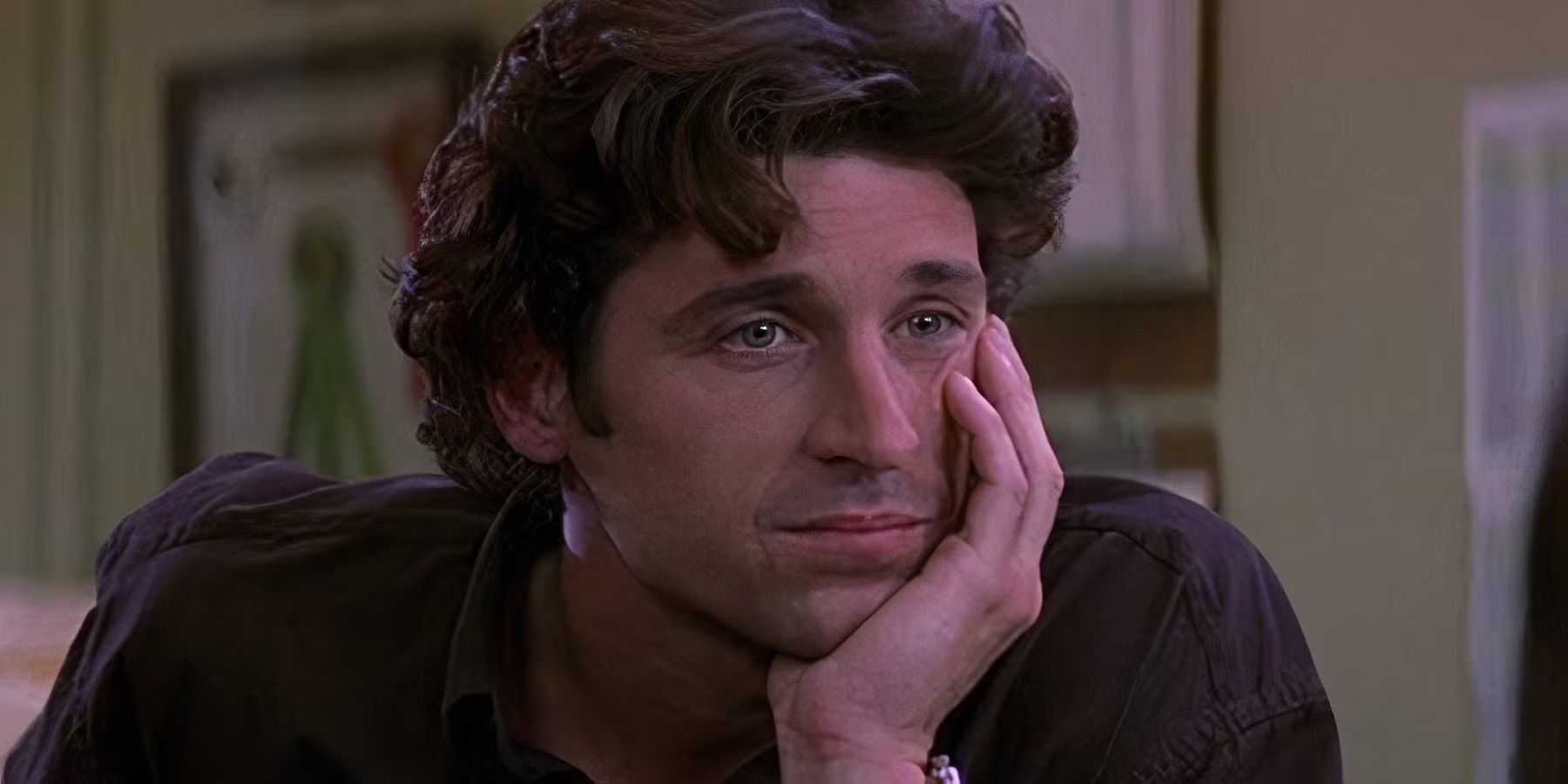
Related
Patrick Dempsey Is Ready to Get Hurt for Love Again in ‘Scream 7’
The ‘Grey’s Anatomy’ alum teased his possible involvement with the franchise’s upcoming installment.
In addition to being there for fans, Lillard also takes great pride in remembering the times when collaborators made him feel seen. A memory he holds especially tight to? A phone call between Wes Craven and his mother on the set of Scream.
“We had one cellphone on set, and that’s crazy in itself, and I went out to call my mom on her birthday. Marianne [Maddalena] and Wes Craven were sitting outside, and I’m like, ‘Hey, do you mind if I borrow the phone and call my mom? It’s her birthday.’ Wes said, ‘Oh, we were just talking about you.’ I was like, ‘Oh, yeah? What’d you say?’ And he said, ‘Someday you’re gonna win an Academy Award.’ I’ve told this story a million times, I don’t know why I’m getting emotional. I was like, ‘Oh yeah? Why don’t you tell my mom that?’
He picked up the phone and called my mom and said, ‘Hey, your son’s incredible. He’s gonna win an Academy Award someday.’
And so, in my life, when you feel insecure about your own career, talking about being canceled or never getting a chance to work again, or all these beats, you have to hold on to the moments when you feel like you were incredible. And so for me, Wes gave me this anchor in my life where I was like, ‘Oh, somebody out there believes …,’ an icon for me, a very pivotal person in my life felt like I was good enough to win an Academy Award one day.”
I’m a big believer Craven was right. There’s no doubt in my mind Lillard has what it takes to deliver an Academy Award-worthy performance, and I’ll continue to root for him to get such an opportunity. But, even with how successful Scream was upon release, it didn’t put him on that path. In fact, as Lillard put it, it didn’t change much for him in the moment at all as far as career trajectory goes.
“Look,
Scream
was a movie that nobody expected. Wes Craven, god bless his heart, was on a cycle of not-great movies. It starred two actresses that were on TV, and back then that wasn’t a thing, they didn’t really cross over, and something incredible happened in the zeitgeist. We caught fire at a moment that, you know, six months later, who knows if it happens? A year earlier? Probably doesn’t. But in that moment, it blew up. So, definitely a pivotal movie in my life.
It changed a lot of people’s trajectory. It did
not
change mine.
It was not a moment in any way, shape or form where all of a sudden I got any different attention. Period. And that really sort of solidified for me, now looking back, I was like, ‘Oh, I was destined to be this blue-collar actor,’ which is great, and I like my career. Don’t get me wrong. If you’d given me my career coming in, I’d be like, ‘You’ve gotta be kidding me. That’s incredible.’
But
,
I really wanted to be the number one on the call sheet
in every movie I’ve ever done. It just never went that way. And so this idea of a breakout role, this idea of changing trajectory, sure, it made me more relevant to some capacity, but in those early days of
Scream
, it didn’t open up opportunities.”
Time would change that. Lillard continued, “Between that and Scooby-Doo, and now Five Nights at Freddy’s, I’ve reached a new plateau in my life, which is really weird, which is unexpected, deeply appreciated, but it’s also like, things just shifted in my life in a way, which is because of Scream, but now it’s like 25 years later.”
“I Quickly Learned That No Amount of Success Is Satiating”
For Lillard, it’s about finding what brings you joy.
Lillard has masterfully made the most of the cards this industry has dealt him. Perhaps he had to wait 25 years for Scream to kick his career into high gear, but he was very ready to do something special — or rather, many special things — with that newfound attention, and it likely had a lot to do with one especially vital lesson he learned over the years. He began:
“When I first started in Hollywood, I just wanted the chicks. Let’s be real. I was in it to get some. I mean, this idea that you come in with this sort of, ‘I want to be an artist …’ I went to school, I was an artistic director of multiple theater companies. I love the art. But when
Serial Mom
came out, I walked past the theater that the movie was in because I wanted to be recognized. I
wanted
to pull up to the club with the fancy car. I
wanted
that moment.”
Lillard had those moments, but quickly learned they’d never be enough. He continued:
“
I
quickly
learned that no amount of success is satiating.
Tom Cruise is out there, he’s done everything, and that homie still
wants
something in his life. So if we agree that fame, success, money gives you nothing, it doesn’t satiate anything, then what is the thing that brings you joy? And the thing that brings you joy is the creative process. The thing that brings you joy is the journey across a lifetime, right? When I started teaching, I came up with this idea, or this sort of allegory that, as artists, we are all these antelopes on the Serengeti. Our job as artists is to spend an entire lifetime doing what we love and die on the other side with other antelopes, and our job is to be together as we travel across the Serengeti and try not to get eaten by shit, right? And that just means you go back and get a job or you stop doing what you’re passionate about to sort of fall in line and become an accountant. Nothing wrong with being an accountant. There’s magic in numbers. But, if you’re an artist, it’s about longevity and about maintaining that sort of artist spirit. Here’s the thing; it doesn’t mean you have to be famous. It has nothing to do with being famous. There’s no reason, as an artist — you’re an artist — that you’re not expressing yourself in some way. This is how you’re expressing yourself. This is your journey as an artist, right?
What you
think
is going to be the thing isn’t always the thing, and you have to be open to the things that bring you joy.
”
Matthew Lillard Is Now a Successful CEO
“Can you build luxury goods for communities that are on the outside looking in?”
Lillard found something that brings him an incredible amount of joy. It’s his company, Beadle & Grimm’s, and now Find Familiar Spirits as well.
“Being the grandfather of geek culture at this moment [laughs],
I think that having been an outsider my whole life — learning disability, transplant, obesity, not fitting in as an actor — finding other people like you, you’re like, ‘You’re here!’
You know what I mean? And I think there’s a welcoming to that. There’s a welcoming to these communities of outsiders.”
As a member of those communities and someone committed to bolstering them, Lillard started Beadle & Grimm’s, a company dedicated to making high-end gaming accessories for Dungeons & Dragons.
“That was born out of friends that have been playing D&D since we were 21 in New York. We still play together.
We were all having sort of the most gentle, lovely mid-life crisis, and we were like, ‘We want to do something else.’
And they were all in good jobs, middle management jobs, but the idea of doing something that we owned was really enticing, and so we launched this company. And it’s been hugely successful, and they’ve all left their jobs.”
Lillard found such great success with Beadle & Grimm’s that he got the itch to expand his work in that realm. With his Find Familiar Spirits partner, Justin Ware, and Tim Sparapani, Lillard brought whiskey into the fold. But these aren’t just any old bottles of whiskey. They’re released in a storytelling-forward fashion. Lillard explained:
“The three of us got together and started to craft this thing called Quest’s End.
Each bottle is a continuation of an ongoing saga across 16 different drops.
Each bottle is a different carriage class, each bottle is a different expression of whiskey, and then each bottle is a different chapter of the story … Our whole idea is, ‘
Can you build luxury goods for communities that are on the outside looking in, or communities that are voracious about what they love?
’ That’s our business model. We build high-end spirit experiences around communities and then engage the community.”
Lillard and co. hit it big developing that product alongside the creative juggernauts of Critical Role. In fact, things went so well, they’re on to their next high-end spirit project, and on that one, they’re collaborating with Lillard’s Life of Chuck director, Mike Flanagan.
“Our first one was Dungeons & Dragons, sort of sword and sorcery, our collaboration with Critical Role, which is a one-off. We are doing more in the future, which we’re excited about. But then, what is the next chapter of that? And that is why tonight, literally, I’m leaving here to go do a live announcement about our next project, which is Macabre Spirits.
Macabre Spirits is a Reposado tequila that is a token of love to the horror community.
Each bottle has a different novella as part of the experience … I went to Mike Flanagan, as we discussed, who is the best, and I said, ‘Hey, do you have any interest in writing a short story?’ He jumped at the opportunity. He wrote something called
Rare, Fine & Limited
. It’s his first novella. It’s his first short story. It’s Earth-shatteringly good.”
Given the core mentality behind everything these companies create, and the passion Lillard himself puts into each product, I’m willing to believe that the novella and the tequila are indeed “earth-shatteringly good,” and the same will be true of their future releases.
“Our belief is that if you craft something with passion, with an authentic point of view, and you’re not selling to everyone, you’re creating an opportunity for the people you want to create opportunities for to engage — building for specific communities, not for everyone, has been super rewarding for us as a team because we’re like, ‘Oh, we know our people and we’re gonna give them something awesome.’ And so, for me, how do I get through? I’m literally the co-CEO, co-founder of this company that I literally work at a desk every day, all day, sort of answering the riddles that are no longer on set, that are as a leader of this company. It’s a different side of my brain. I had a learning disability my whole life, so I’ve always thought I was stupid, right?
My bullshit story I tell myself is that I’m stupid. As I’ve gotten older, I’ve grown into my own power, I’ve grown into my wisdom
, which is a word I like to use a lot. But, in this moment, I’ve been challenged and every step of the way I’m making mistakes, every step of the way I’m succeeding, and we are, as a company, really excited about the future.”
Eager to hear even more from Lillard? There’s loads more from where this came from! Be sure to catch our full Collider Forces chat in the video at the top of this article or listen to the conversation in podcast form below:
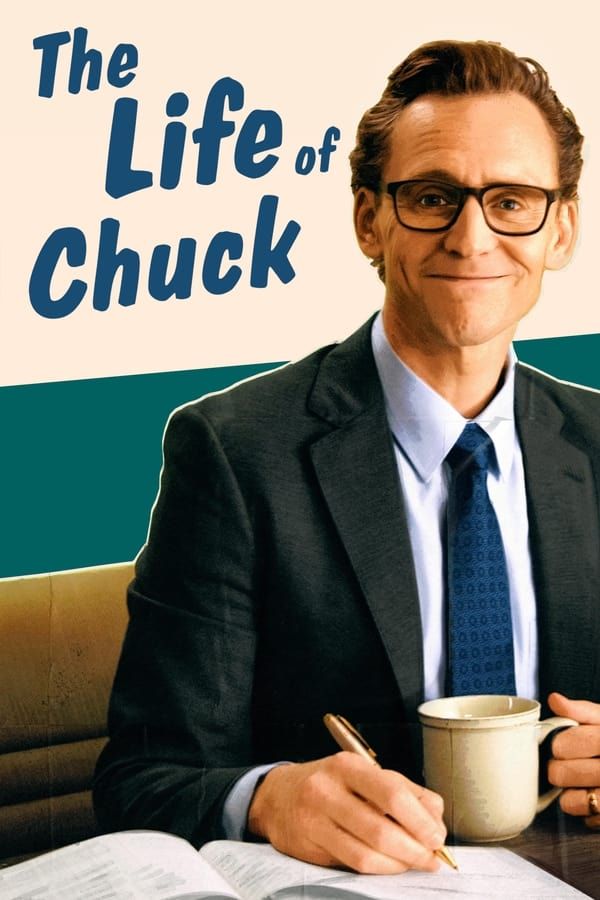
This story, told in reverse order, begins with the death of Chuck at 39 and moves backward through his life, uncovering significant moments that shaped his existence. As the narrative unfolds, it explores themes of memory, fate, and the connections that define a person’s life.
- Release Date
- September 6, 2024
- Runtime
- 110 Minutes
Macbre Spirits’ Rare, Fine & Limited Reposado Tequila is now available for purchase.
Buy Here
